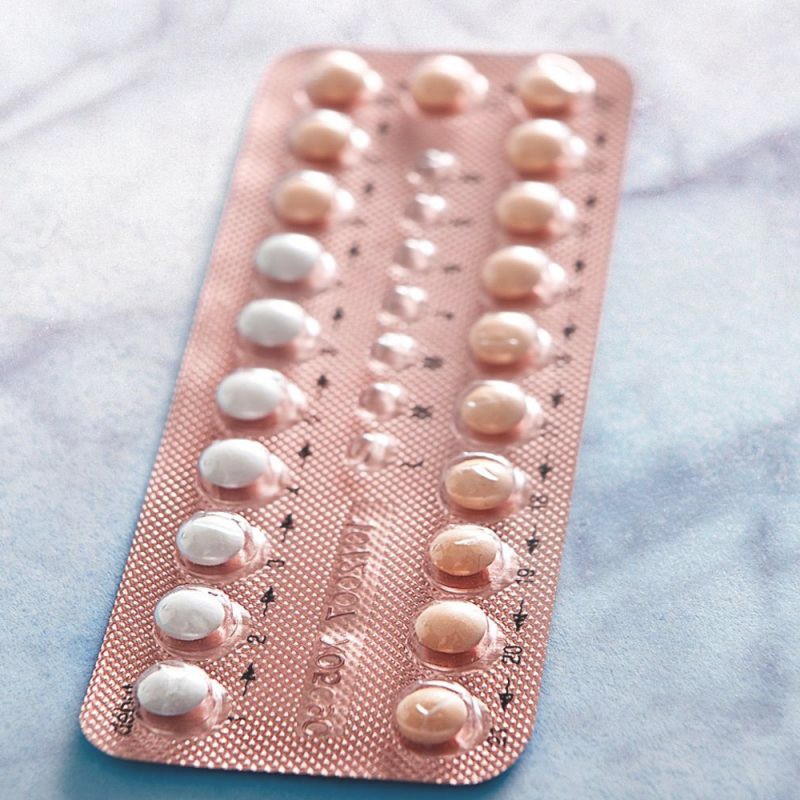Is The Pill Really That Bad For You?
Why has the pill had so much bad press?
Let’s go back to basics – the pill to prevent pregnancy comes in two main forms, the combined pill (which contains oestrogen and progestogen hormones) and a progestogen-only pill, also referred to as the “mini-pill”. When you take either form of the pill, your sex hormones are supressed and replaced with synthetic versions, which are released in a steady stream. Your hormones affect 150 of your essential bodily functions – from systems that control energy levels to memory, brain waves, vitamin retention and metabolism – and negative headlines surrounding the pill have stemmed from the slow-build side-effects it can have on various hormones, resulting in anything from weight gain to bloating and a lowered immune function.
What exactly has been said?
There’s no denying the pill has been embroiled in a number of health scares over the last few years. Studies have shown that combined pills in particular carry a small risk of serious conditions including blood clots – although this is known to be more common in women who are taking a high oestrogen Pill or a third-generation pill containing the progestogens desogestrel and gestodene. A recent large-scale study also found women who take the pill are more likely to be treated for depression. It found those on the combined pill were 23% more likely to be prescribed an antidepressant by their doctor, most commonly in the first six months after starting on the pill. Women on progestin-only pills – a synthetic form of the hormone progesterone – were 34% more likely to take antidepressants than those not on hormonal contraception. Moreover, teens taking the combined Pill were discovered to be at greatest risk, with an 80% increased likelihood of being prescribed antidepressants.
Is it true the pill can increase your risk of certain cancers?
The jury’s out on that one. It has been suggested women taking the pill are at an increased risk of breast cancer, although other studies have said this is only the case if a woman has other strong risk factors for breast cancer such as a family history. Separate studies have also implied women taking the combined pill for over five years are at increased risk of cervical cancer, although this gradually drops after the pill is stopped. Nonetheless, it’s also worth bearing in mind research last year revealed women who have taken the pill at any point during their reproductive years are significantly less likely to have bowel cancer, endometrial cancer or ovarian cancer than women who have never taken it.
Are some pills better than others?
No. Every woman’s body is so different that it’s impossible to say how you’ll react to certain types of the pill, so it’s not a case of one brand being better than another. However, unless you suffer from any medical issues, the combined pill is most likely the best contraceptive pill for you; some of the most popular brands include Yasmin, Microgynon, Cilest and Rigevidon.
However, European Society of Contraception member Dr David Delvin admits, “Some doctors are under financial pressures to prescribe the cheapest drugs first, which might not necessarily be the ones best suited to the individual in front of them. For example, one year’s treatment of the contraceptive pill Levest costs the NHS around £8 while Eloine, a pill specially designed to alleviate pre-menstrual syndrome and acne, costs around £63. If you want a more informed choice, go to a doctor or nurse who has training in family planning. You’re likely better off with a low-oestrogen pill and a second-generation pill. The reason for preferring a second-generation pill is that the ones that were invented in the late 1980s (third-generation pills) are now known to carry a moderately increased risk of thrombosis.”
Are there some people who should avoid the pill?
Yes. Like all medications, the pill isn’t for everyone. To find out whether the pill is right for you, talk to your GP, practice nurse or pharmacist. You shouldn’t take the pill if you:
- are pregnant
- smoke and are 35 or older
- stopped smoking less than a year ago and are 35 or older
- are very overweight
The bottom line?
While it’s definitely worth doing your research when it comes to the pill, it’s important to remember that pregnancy also carries its own risks, including a much higher risk of blood clots than the Pill, as well as mood changes. It’s also crucial to bear in mind that the protective effects of the Pill against womb and ovarian cancers last longer than the increased risks of breast and cervical cancers. Overall, this means that the protective effects outweigh the increased risk of cancer, if you look at all the women who have taken the pill.
Your GP can help you to make an informed choice about whether to use the pill. This decision should weigh up the risks and benefits, as well as taking into consideration your lifestyle, personal preferences, any other medical conditions, and whether you have a strong family history of cancer.
Visit CoyneMedical.com
DISCLAIMER: We endeavour to always credit the correct original source of every image we use. If you think a credit may be incorrect, please contact us at info@sheerluxe.com.


